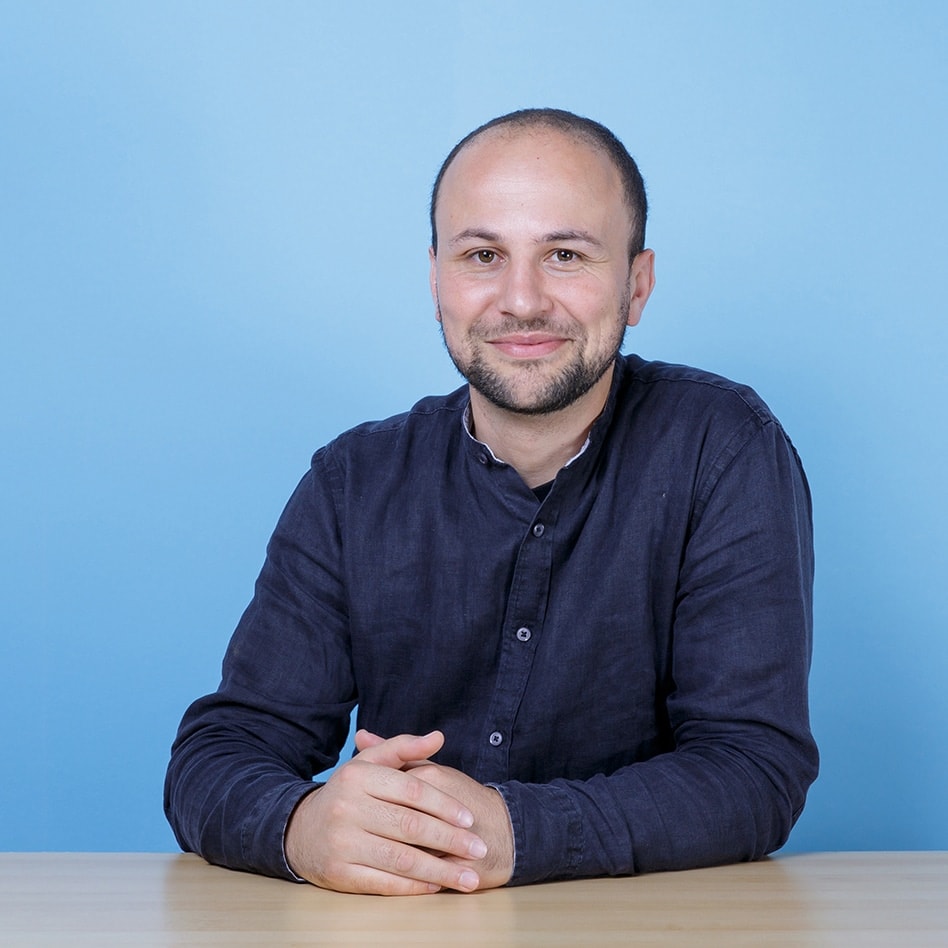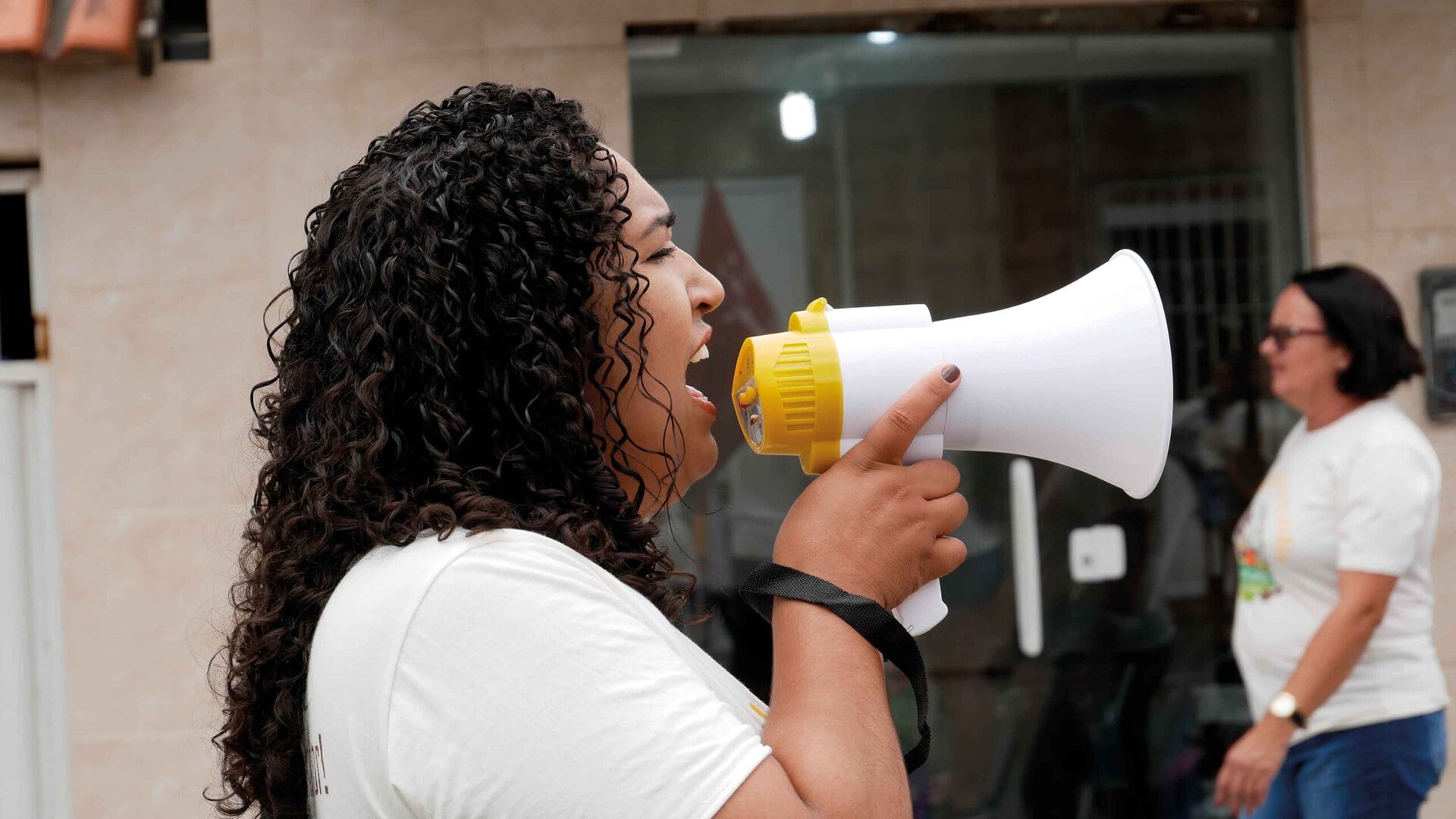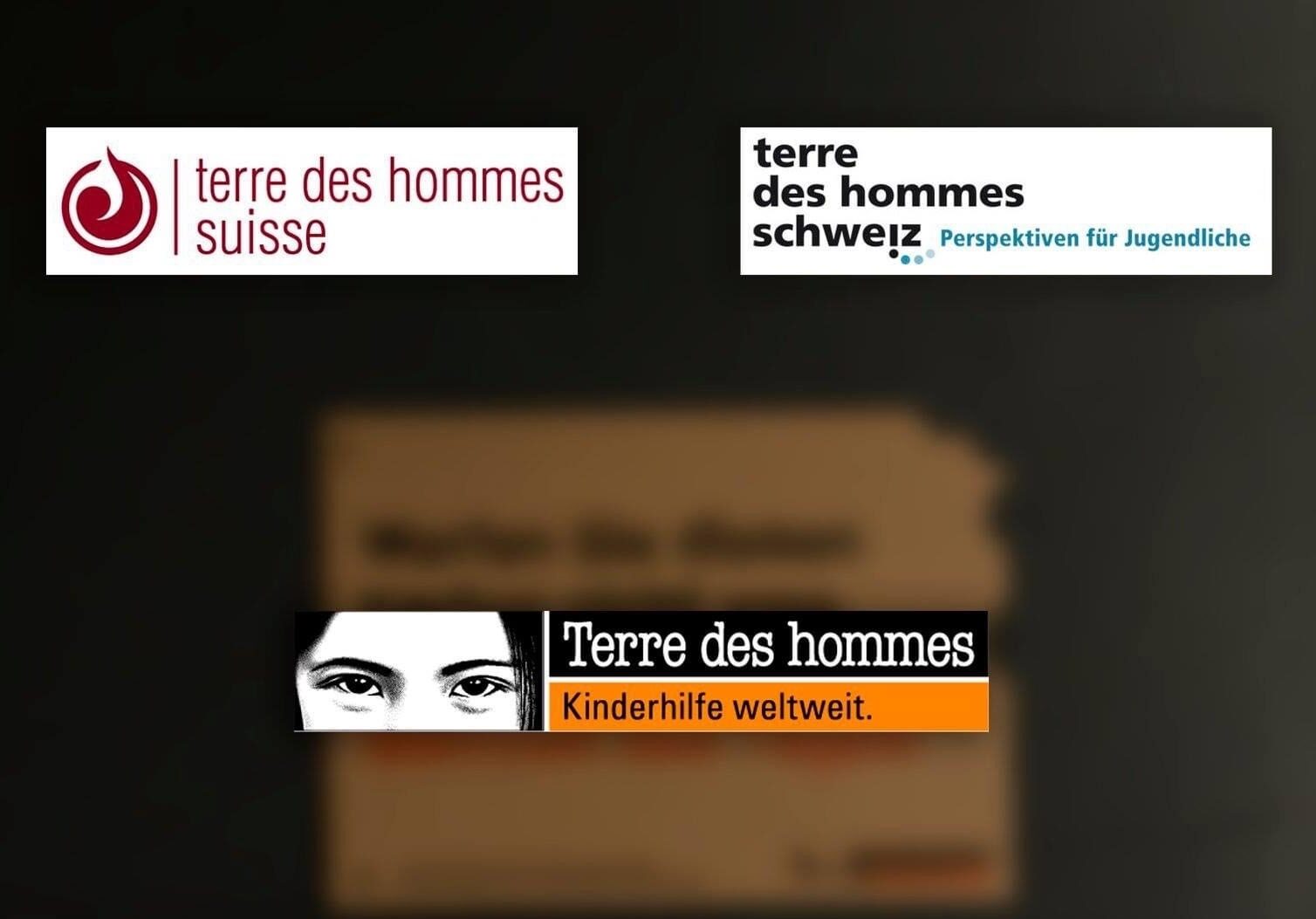After the lockdown in South Africa, many girls stopped attending school. They have since become pregnant. New data shows that the number of teenage pregnancies has increased by up to two thirds during the pandemic. To mark this year’s World Sexual Health Day, we speak to Hafid Derbal, Head of Sexual and Reproductive Health, about the causes and how terre des hommes schweiz is tackling the problem.
Lara Haacks: The latest data shows that teenage pregnancies in southern Africa have increased by up to two thirds. Does that correspond with your observations?
Hafid Derbal: Unfortunately, this is absolutely in line with our observations and with what I have heard from our partner organizations. Especially in rural areas. Although there are rarely any statistical surveys there, all schools report that many girls no longer come to class after the sometimes long lockdowns. Pregnancy is often the cause.
Why is that, why did more girls get pregnant during lockdown?
There are many reasons for this. But rape is unfortunately part of everyday life in South Africa. During the strict lockdown, the already high number of unreported cases of domestic and sexual violence has risen even further. In many households, many people live under one roof. During the lockdown, these people were literally crammed together. What’s more, many lost their jobs, increasing pressure and frustration. This is a very dangerous cocktail of dynamics, which has exacerbated the problem. What’s worse is that the victims were trapped together with the perpetrators of the violence.
What does the work of terre des hommes schweiz in South Africa look like in relation to teenage pregnancies?
There are two levels: Prevention and aftercare. We want to be active and help young people to prevent pregnancies before they happen. Of course, we also need to help those who are already pregnant or have already given birth
It is important that young girls know about their own bodies and sexual health. This includes knowledge about menstruation and their fertile days as well as how to use contraceptives to protect themselves from HIV/Aids and unwanted pregnancies. This is particularly important because these topics are still taboo in many societies – in South Africa, especially in rural areas. However, it is not just about the knowledge itself, but also about the self-confidence to make decisions.
What decisions?
About contraception. It is not enough to know what a condom is. Girls and young women need to be able to confidently say to their sexual partners: “I want to have sex with you, but only with a condom”. Or that they don’t want to have sex. Of course, this also applies to young men, who also need to protect themselves against HIV/Aids and unwanted pregnancies. We work with our partners to ensure that young men are aware of their responsibility. This is the prevention work that is done with both young women and young men.
And what does the aftercare look like?
Aftercare is about ensuring that young girls do not disappear from society when they become pregnant. For pregnant girls, their education often ends earlier because they have to drop out of school. As a result, they slip into a spiral of poverty and become dependent. Financially, because they have no qualifications and cannot learn a trade. And in their decisions, because without education they are dependent on the knowledge of others. This denies them the chance to become independent. It is therefore essential that young girls can attend classes for as long as possible during pregnancy and return to school as soon as possible after giving birth.
What is the main reason for staying away?
Shame and stigmatization. Pregnancies are often denied. First by the girls, and then by the parents – until it can no longer be denied. When it comes out publicly, it is often a shock and a shame for everyone. The girls are no longer allowed to go out or go to school. They are also often stigmatized for it.
We are also committed to ensuring that the girl and her parents come to terms with the pregnancy at an early stage. In addition to the need to return to school, we also want to convey that it is important to admit to a pregnancy at an early stage. This is the only way to ensure prenatal support. The first medical examination should not take place in the sixth or seventh month. This often involves a great deal of persuasion on several levels.
What needs to happen for these girls to be allowed to continue attending classes?
In principle, the law in Zimbabwe and South Africa stipulates that they can continue to go to school – as long as they want to and are able to. Unfortunately, many principals and teachers think that other girls might get stupid ideas from them and become pregnant. Unwanted pregnant girls could be role models and educate their classmates. We teach teachers more tolerance and look for joint solutions on how young girls can be reintegrated into school after giving birth.
On the other hand, the parents of the young girls are also in demand here. We often have to convince them that their daughters can continue to go to school. They not only have to allow it, but also actively help. For example, by looking after their grandchild during school.
terre des hommes schweiz works with local partner organizations. Why is this an advantage?
It is important for persuasion and awareness-raising work that the partner organizations are well anchored in the communities. This makes it easier for parents, teachers and head teachers to trust them. And it is also important that the community and medical contacts know the partner organization.
They all need to be convinced and on board so that the young people experience trust and support. They all need to help ensure that pregnant young girls are not stigmatized and judged. This is what we are working on and why we rely on good partner organizations.
What would you wish for the future of young people in South Africa?
We often focus on girls because they often have poorer starting opportunities in life. And the older they get, the more patriarchal structures prevent girls from developing their personalities. That’s why I want young girls to have more space to develop. And I wish them more empowerment to overcome the hurdles that still exist.
But we must not forget the boys. For respectful partnerships, for example, everyone needs to be educated. I would like them to be less trapped in toxic images of masculinity. Many boys and men have a great need for tenderness and emotional closeness, but are not allowed to live it out because of misleading role models. I want these men and boys to learn how to talk openly about their emotions and needs. And this is something we work towards every day together with our partner organizations.

Hafid Derbal
Program responsibility South Africa and Zimbabwe
Topic responsibility Sexual and reproductive health
Text: Lara Haacks, Samuel Rink, Photo: Cebisile Mbonani



